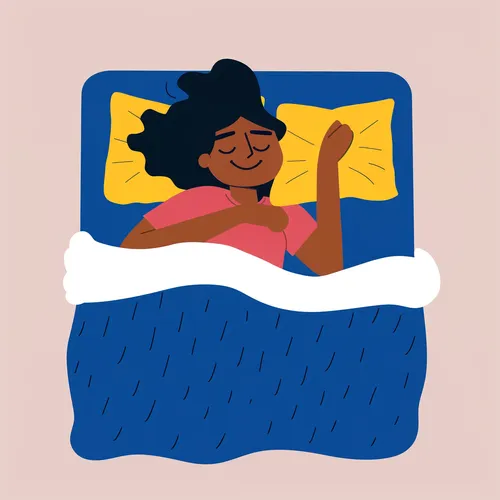As a nation, we’re chronically sleep deprived. According to sleep guidelines, healthy adults should get a minimum of 7 hours of sleep per night. But do we really need this much? Or could we get by on less? Let’s take a closer look at sleep quality vs quantity.
We all know people who claim to thrive on just 5 hours of sleep a night. Yet anything less than 8 hours leaves you tired and groggy. Why such big differences? It’s not just about the number of hours you sleep, but the quality of that sleep.
Sleep quality refers to how well you sleep throughout the night. Did you sleep soundly or wake up frequently? How long did it take you to nod off? How refreshed did you feel when your alarm went off? If you spring out of bed raring to go, you’ve likely had a good night’s sleep – regardless of the number of hours.
How Technology Impacts Sleep Quality
The blue light emitted from phones, tablets and computers suppresses melatonin production, making it harder to fall and stay asleep. Using devices before bed delays your circadian rhythm so you feel more alert when you should be winding down. Limit screen time in the evenings and turn off all devices 30-60 minutes before bed. Read a book or listen to relaxing music to help your body prepare for sleep.
How Sleep Quality Impacts Your Health
Mounting evidence shows that poor sleepers have a higher risk of obesity, diabetes, heart disease, stroke and mental health issues like depression. Poor sleep increases fatigue and makes it harder to focus and enjoy life.
As we age, our sleep patterns naturally change. Many people don’t sleep as deeply in their 50s and 60s as they did in their 20s. Age-related changes to our circadian rhythm and decreasing melatonin levels mean we often wake earlier and more frequently at night.
Tracking Sleep Quality
Keeping a sleep diary can help identify issues affecting your sleep quality. Record your bedtime, how long it takes to nod off, any night wakings, wake up time and how you feel in the morning and evening. After a week or two, review patterns and make changes.
For example, if you struggle to fall asleep, try going to bed 30 minutes later while keeping your get-up time the same. It’s common for poor sleepers to stay in bed longer to catch up, but this just disrupts sleep patterns more.
Look At Your Evening Wind-Down Routine
Reflect on your pre-bedtime habits – do you eat late heavy meals, drink alcohol or do intense exercise in the evenings? These can all prevent restful sleep. Try to avoid big meals 2-3 hours before bed, limit alcohol to 1-2 units and do gentle stretches/breathing exercises to relax before bed. Establish a consistent wind-down routine to help your body prepare for sleep.
3 Tips For Better Sleep Quality
Other ways to improve sleep quality include:
- Maintaining the same wake-up time every day, even weekends
- Limiting daytime naps to 30 minutes, at least 6 hours before bedtime
- Getting regular exercise
Consistency is key for good sleepers – they tend to sleep around the same number of hours each night and stay asleep until morning.
Creating a sleep-friendly bedroom environment can also dramatically improve sleep quality. Keep the room cool, dark and quiet. Consider using blackout curtains, ear plugs, or a white noise machine if outside light or sounds disturb you. Your mattress and pillows play a big role too. If yours are old or uncomfortable, invest in new ones that provide proper support.
Speaking of support, did you know your sleeping position impacts sleep quality? Side sleeping is usually best as it keeps your spine aligned. Back sleeping is okay, but stomach sleeping can cause neck and back pain. If you’re a stomach sleeper, try hugging a pillow to take pressure off your spine.
Finally, wind down with a relaxing pre-bed routine like light stretches, deep breathing, or a warm bath. Establish a consistent schedule where you go to bed and wake up at the same times. Your body’s internal clock will get used to the cycle, making it easier to fall and stay asleep.
Sleep Tips Recap
- Focus on sleep quality, not just quantity
- Poor sleep impacts health and daytime energy
- Keep a sleep diary to identify issues
- Prioritise consistent wake times and bedtimes
- Speak to your doctor if you’re still tired after improving sleep habits
The odd night of poor sleep isn’t a major issue. But if you’re doing everything right and still feel exhausted, see your doctor. They can check for underlying issues like sleep apnoea, acid reflux, medication side effects or mental health problems – all of which can severely impact sleep.
So don’t obsess over the perfect number of sleep hours. Pay more attention to sleep quality and you’ll reap the health benefits of a good night’s rest.
Photo “The Myth of 8 Hours” by Anthony Cunningham for Zoom Health
Zoom Health is a leading UK supplier of Home Health Tests and Earplugs





